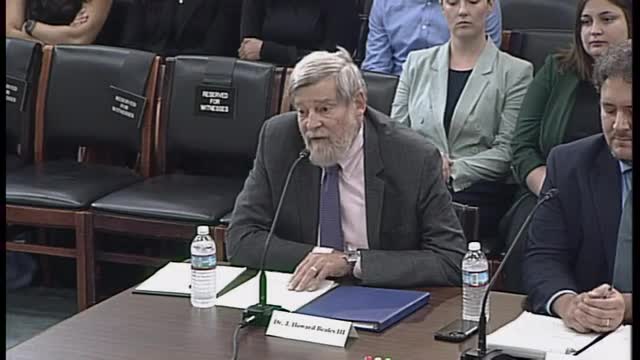FTC Faces Crisis as Bipartisan Trust Erodes
September 19, 2024 | Energy and Commerce: House Committee, Standing Committees - House & Senate, Congressional Hearings Compilation
This article was created by AI summarizing key points discussed. AI makes mistakes, so for full details and context, please refer to the video of the full meeting. Please report any errors so we can fix them. Report an error »

In a recent government meeting, discussions centered on the evolving role and reputation of the Federal Trade Commission (FTC) amid significant administrative changes. The meeting highlighted the FTC's historical trajectory, particularly its transformation during the Reagan administration, which saw a reorganization of the Bureau of Consumer Protection and a renewed focus on competition and consumer protection policies. This period established a bipartisan consensus that bolstered the agency's global reputation, earning it a five-star elite ranking for two decades.
However, the current administration under Chair Lina Khan faces a markedly different environment. The meeting revealed concerns regarding the Biden administration's approach to the FTC, particularly its perceived hostility towards the agency's experienced career staff. This shift has reportedly led to a decline in staff morale and trust in senior leadership, with a significant turnover in leadership positions noted in 2021.
The discussions also touched on the challenges the Khan administration faces from a judiciary that has entrenched the consumer welfare standard in antitrust law, which the current leadership opposes. Unlike past administrations that employed strategic, evidence-based approaches to legal changes, the current FTC has been criticized for prioritizing headlines over substantive results.
Moreover, the meeting addressed procedural changes within the FTC's rulemaking process, which have raised concerns about public participation and transparency. The commission's recent actions, including controversial rulemakings that bypassed established standards for public input and evidence consideration, have sparked debate about the agency's commitment to reasoned decision-making.
As the FTC navigates these challenges, the implications for competition policy and consumer protection remain significant, with stakeholders closely monitoring the agency's direction and effectiveness in the current political climate.
However, the current administration under Chair Lina Khan faces a markedly different environment. The meeting revealed concerns regarding the Biden administration's approach to the FTC, particularly its perceived hostility towards the agency's experienced career staff. This shift has reportedly led to a decline in staff morale and trust in senior leadership, with a significant turnover in leadership positions noted in 2021.
The discussions also touched on the challenges the Khan administration faces from a judiciary that has entrenched the consumer welfare standard in antitrust law, which the current leadership opposes. Unlike past administrations that employed strategic, evidence-based approaches to legal changes, the current FTC has been criticized for prioritizing headlines over substantive results.
Moreover, the meeting addressed procedural changes within the FTC's rulemaking process, which have raised concerns about public participation and transparency. The commission's recent actions, including controversial rulemakings that bypassed established standards for public input and evidence consideration, have sparked debate about the agency's commitment to reasoned decision-making.
As the FTC navigates these challenges, the implications for competition policy and consumer protection remain significant, with stakeholders closely monitoring the agency's direction and effectiveness in the current political climate.
View full meeting
This article is based on a recent meeting—watch the full video and explore the complete transcript for deeper insights into the discussion.
View full meeting